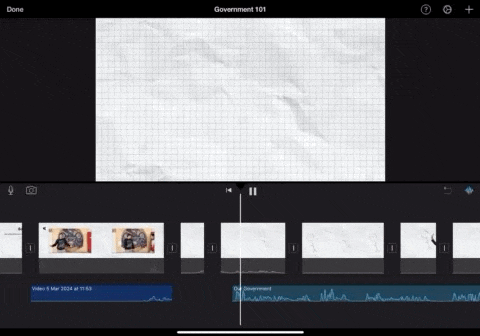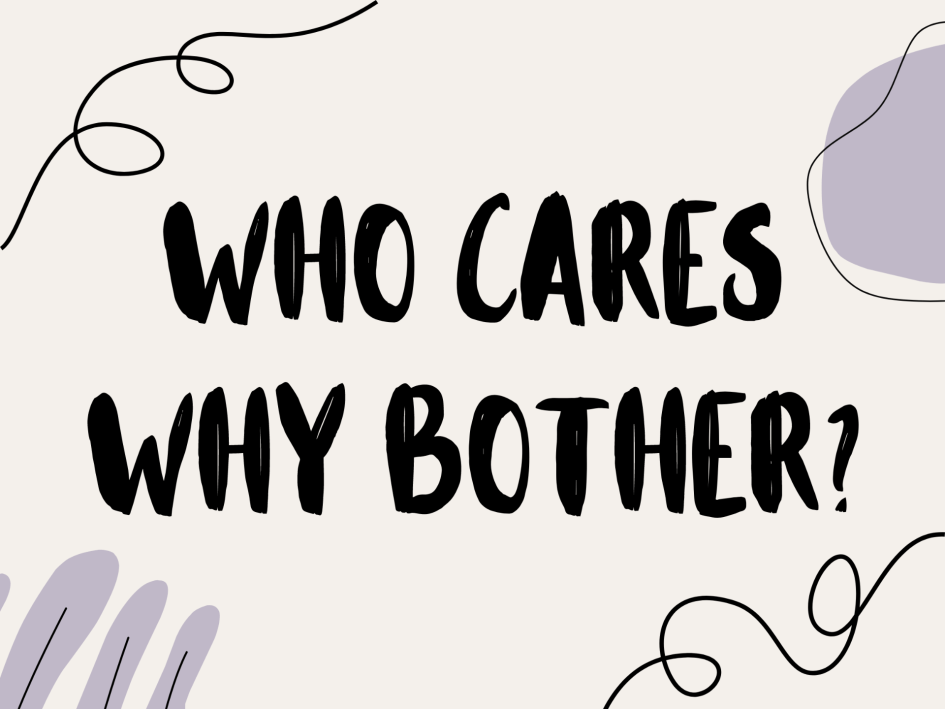I never really cared much about politics.
In the media, I’ve always thought there was a lot of conflict and strong emotions surrounding different political issues and how they’re handled. Even though I’m personally invested in some political issues more so than others, I never actually cared much about learning how our government operates and how I can on an individual level make an impact. In hindsight, I had a rather ignorant mindset along the lines of: “Well, society’s already a flaming dumpster fire so there’s nothing I can do about it.” However, I’ve begun to realize that’s not necessarily the case…
We begun the early stages of this project with a novel study on Lord of the Flies by William Golding. As I’ve said to my friends during a smaller book discussion on the novel, “I think Lord of the Flies is full of sad, interesting thoughts.”

I remember a few years ago, I tried to read Lord of the Flies for fun like how typical teenagers tend to do in their free time, of course. I found that I couldn’t really get into it because of how slow the beginning was. At the time, I didn’t really have an understanding of what an allegory was anyways, so I probably would have interpreted it as a dark adventure book without seeing the parallels it has to the real world. Point being: I don’t regret leaving the novel for when my brain had developed more since it allowed me to collect a deeper understanding than I would have at a younger age.
Even though I have a love for reading and novel studies, I found that I didn’t connect with Lord of the Flies as much as I would have liked to. It’s one of those books you would always hear referenced in other media, just as To Kill a Mockingbird oftentimes is. I was actually so hyped up for the novel only to be met with disappointment. While I do believe Golding’s writing opens up the opportunity for a lot of discussion and reflection to be had, I found myself disagreeing with some of what he had to say – particularly on what he had to say about human nature.
When I learned we were to be assessed on our understanding of the novel based off of a socratic seminar, the anxiety crept in. I often find it hard to find spaces to interject my own thoughts and opinions in class discussions – and even in everyday regular conversations. Commonly during class discussions, I would hear someone else voice a thought I had before I got the opportunity to, or the conversation would move on before I could interject and express my thoughts. It was almost as though I had predicted the future (Simon much?), because that was actually exactly what ended up happening.
I felt as though I didn’t get the chance to fully interject and express my own opinions on the book during our socratic seminar. It was almost as though there was an expectation that louder voices would get a lot of the talking space meanwhile quieter voices wouldn’t get as much? I found myself frustrated at the end of the discussion because I had wanted to voice something, yet the speaking space and conversation topic kept bouncing around from person to person and I hadn’t been able to interject – which felt pretty terrible. I just hate having something that I feel is valuable and important to say, yet feeling as though I don’t have the space to interject and say it; which is probably how Piggy felt in the novel.
Additionally, during the beginning stages of reading the novel, I had a lot of difficulty understanding the connections and parallels I would see some of my peers drawing. My peers would see epileptic prophet Jesus where I saw a slightly unhinged, delusional boy with a sense of morality. I started to feel a lot of pressure because it felt as though the understanding of the novel that I would assessed on would be the same analysis found everywhere online.
Lord of the Flies has been around for quite some time and is very famous as a novel study within school settings, which means every sentence in the book from cover to cover has been overanalyzed with a meaning already accounted for. It was difficult because while I had wanted to synthesize my own interpretation of the literary work, I would see my peers having thoughtful discussions and referencing YouTube videos or internet summaries they had previously viewed, and reaching similar conclusions that they agreed upon. I felt like there was sort of this pressure to adhere to the same connections and the same interpretations found all over the internet, which I thought was rather boring. It felt as though there wasn’t much room for originality or creativity in interpretation when it seemed as though there was only “one right answer” to the book’s meaning. In my analysis of the book in my reading notes, it was hard to maintain a balance between saying what I believe I was supposed to say and saying what I actually thought. I think that it’s actually very visible in my own notes where I had my own original insight and interpretations of the the novel versus where I was playing into the answers that I was supposed to have drawn.
Although there are many different methods to approach reading the book, our class had to do so as a political allegory; which I found challenging when in my opinion, much of the social commentary and beliefs found within the book are outdated and lack relevance in modern society today. If anything, I have concluded that Golding and I probably wouldn’t get along very well.
Anywho.
The big task for this project was to give a presentation to an audience of grade 10 and 12 students that would convince them to give a flying fiddlestick about politics. Considering I didn’t care much for politics at the beginning of the project, this seemed like an insurmountable task at the time. However, with Brooke, Carter, and Cole as my group members, we persevered.
Usually with group projects in PLP, we would be advised to created a DRI and organize ourselves into roles. Although we didn’t officially assign a DRI (at least I don’t think?) I think our group managed to naturally structure ourselves into a functional group – or should I say society… It was almost metaphorical that within our groups, we were just blindly given the task, and given the freedom to structure ourselves as we pleased; akin to the plot of Lord of the Flies. I actually really wonder if that was intentional on Ms. Madsen’s part or if it was just silly coincidence. Luckily, our group dynamics didn’t end up as disastrous as the social dynamics of the boys on the island, and we managed to organize ourselves fairly efficiently. I think part of the reason why we got so much freedom was what I’d like to call “senior student privilege” which in itself is a bit of a double-edged sword. As every piece of Spiderman media ever would put it, “With great power comes great responsibility.”
One of the major required components of our presentation was an explainer video on Canadian government. Everyone in my group contributed to the video (some more so than others) though I ended up being the person who focused on the visuals and completed the video editing.
At first, I only did it because the deadline seemed pretty tight and video editing is hard to do collaboratively since as of now, there’s no great software to collaborate on for video editing. It later became a bit of an unsaid expectation that I would be the one to finish the video and complete any revisions. While I didn’t mind having that responsibility, it gave me a bit of tunnel-vision as I focused on that part of the presentation while my other group members moved on to plan the other aspects of our presentation. By the time the video was completed, I had already missed a lot of the planning around what our presentation would look like, which I slightly regret since I wish I had actively involved myself more in those planning stages. Our group’s vision was to create TikTok videos explaining different topics, which I presume has to do with the supposed diminishing attention spans of my generation due to social media… haha.

My group members did a commendable job in their own video editing for their own individual Tiktok videos. Unfortunately, Carter and I were absent from school due to illness on the day of the presentation, though I think the fact that our presentation largely had videos instead of speaking roles helped lessen the burden of having half your group missing the day of. (I don’t know what we would have done without Brooke and Cole being there – kudos to them!)
Why do politics matter and why should you bother?
So… who cares and why bother?
From the start, I thought the project name was interesting because of how dismissive it sounded, when in actuality, the project is about the opposite: why it’s worth your while to care about. Whether I like it or not, politics and government have a direct impact on political issues I care about. The environment. Social equity. Education. Healthcare.
Growing up during this time period, it’s really easy to see messed up and complex things in society in the media or in the news. It’s easy to not want to involve yourself because of all the conflict that is made visible – or because it feels as though you can’t make much of a difference as an individual. It’s easy to feel as though you don’t fully understand politics and hesitate on involving yourself due to feeling as though you can’t make informed decisions on the matter. However, I’ve come to the realization that if an individual wants to see change in different aspects of society, it’s not impossible but does require the involvement of oneself – which can be in the form of voting. It seems as though there are barriers in educating oneself on politics so as to make an informed decision when voting, but in actuality, there’s plenty of easily accessible resources found on the internet regarding not only voting but also the values of different parties and what they stand for.
I think there’s a lot of pressure put on my generation to fix problems created by generations before us – especially climate change. If we want to be changemakers and take actionable steps towards the change we wish to see in society, it is important to not only educate ourselves on political issues but also realize the impact voting can make. Senior citizens are within the highest demographic of voters, yet don’t represent the desires of the entire population. If we want to change that, it’s important for youths to initiate that change.


Leave a Reply